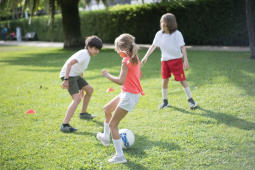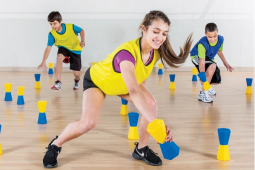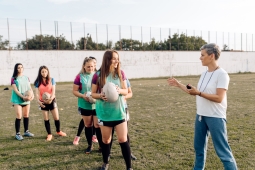[ Feature Article ] During the early days of the pandemic, I pitched my idea to the administration at Larkhall Academy: an initiative designed to keep our school community engaged in movement. This initiative would be simple enough for anyone—students, staff, or community members—to participate in, and it would take very little time to complete. I named it Time to Move.
[ Feature Article ] Can you tell us a little about The True Sport Experience and what inspired the development of this resource? The True Sport Experience is a three-volume resource designed for educators working with...
[ Feature Article ] This is the third and final article in a series about two teacher education programs, Western Norway University of Applied Sciences (HVL) in Norway and Mount Royal University (MRU) in Calgary, collaboration in the field of Physical and Outdoor Education in teacher education. Written by three teacher educators, these articles are useful to those in the PHE field(s) in schools and in higher education. They demonstrate how there is much to learn from looking beyond our own borders through international partnerships engagement which can support everyone’s professional development, practice and pedagogy, philosophies of learning and teaching, and friendships.
[ Feature Article ] Toppletubes are an exciting and versatile addition to any physical education or classroom experience. Originally designed to make the popular warm-up game of "cup flip" easier and fairer, Toppletubes offer a variety of uses beyond the traditional activity.
[ Feature Article ] In May 2019, Physical and Health Education (PHE) Canada hosted the inaugural PHE Thinkers Gathering in Montreal, uniting over 100 leaders from across the country. This diverse group included school...






